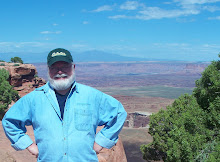Surprisingly, today, I ran into Scott's name again while reading Michael Quinion's weekly e-column, "World Wide Words." Mr. Quinion is an Englishman and an etymologist who is an expert on the derivation of words. He is also a writer on the subject. Some of his titles are "Ballyhoo, Buckeroo and Spuds," "Gallimaufry," and "Why Is Q Always Followed By U?".
Words, of course, are the building blocks of writing. Finding the right word can be exquisite:
"the tintinabulation of the bells" -- Edgar Allen Poe.
Or stringing words together to invoke a physical reaction:
"... his mouth was full of the taste of pennies" -- Ernest Hemingway
Or, from the bard:
"If music be the food of love, play on ..." -- William Shakespeare
Quinion reminds us of Scott's contributions and innovations beyond "Ivanhoe" as the first historical novel:
He's credited with either popularising or inventing many words and phrases, to the extent that he is marked as the first user of more than 700 in the Oxford English Dictionary and he lies third behind the Bible and Shakespeare in innovation in that work. He's recorded as the first user of, to take a few terms at random, Calvinistic, blood is thicker than water, clansmen, cold shoulder, deferential, flat (meaning an apartment), Glaswegian, jeroboam, lady-love, lock, stock and barrel, Norseman, otter hunt, roisterer, Scotswoman (in place of the older Scotchwoman), sick-nurse, sporran, weather-stain and wolf-hound.
And, for those of us in the business of media, Walter Scott was the first to use the term "free-lance," as in he and his lance are for rent.
I leave you, dear reader, with these other words from Sir Walter Scott:
O! many a shaft, at random sent,
Finds mark the archer little meant!
And many a word, at random spoken,
May soothe or wound a heart that's broken!
~~
Breathes there the man, with soul so dead,
Who never to himself hath said,
This is my own, my native land!
~~
If a farmer fills his barn with grain, he gets mice.
If he leaves it empty, he gets actors!









No comments:
Post a Comment